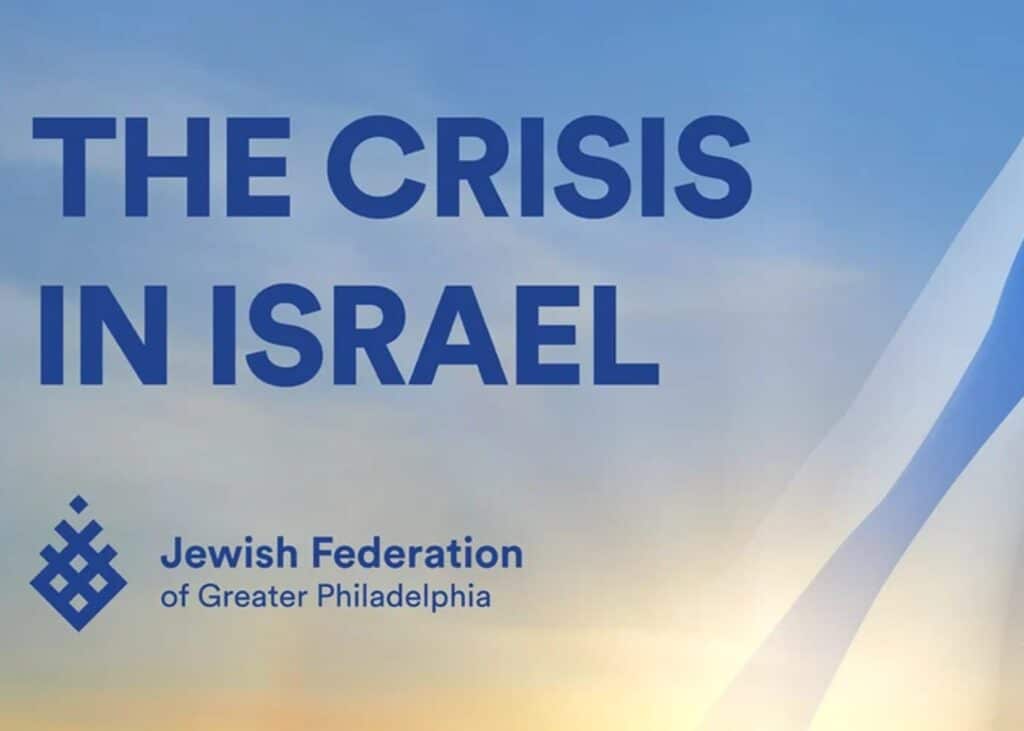Michael Balaban’s Update on the War in Israel

May 31, 2024
– Michael Balaban
Jewish Federation of Greater Philadelphia President and CEO
It’s a phrase we’ve seen everywhere – reposted on social media feeds, written on protest signs, graffitied with spray paint onto the side of buildings: “All eyes on Rafah.” The phrase is spreading rapidly on Instagram and X, where it has become the new rallying cry for the pro-Palestinian movement.
But what the millions of people resharing this slogan do not realize is that while their eyes are on Rafah, history’s eyes are on them.
Rafah is the hub for displaced Gazans, that recently was home to more than 1.4 million evacuees in its refugee camps. Unfortunately, Rafah is also one of Hamas’ last remaining military strongholds, with suspicions that senior Hamas militants and Israeli hostages are being hidden in the southern city.
This is how Hamas rages terror – by launching surprise attacks that massacre thousands of Israelis, by holding innocent men, women and children in captivity, and by putting their own Palestinian people in direct danger by maintaining a military stronghold in the city filled with Palestinians. Hamas knows that to stop their violence, more violence must first be inflicted on the refugees in Rafah.
So I ask, if millions of eyes are on Rafah right now, where were those eyes on Oct. 7? The only way to secure Israel’s safe future, and to protect the true interests of the Palestinian people, is to remove Hamas completely from power. And the only way to Hamas is through Rafah.
Any loss of life is a tragedy. I have faith that as the operation in Rafah continues that the Israeli government will urge further evacuation of the Palestinian families residing there. I encourage you to listen to the IDF spokesperson’s press briefing on the recent airstrike in Rafah, including the military’s steps to mitigate future civilian harm and the investigation that is currently underway.
Despite Hamas’ inflammatory reports, the strike did not take place inside the designated humanitarian safe zone. It used the smallest available munitions from IDF aircrafts, meaning that the deadly fire was likely caused by an unintended secondary explosion on the ground. Initial investigations point towards the likely cause of Hamas storing weapons among the civilian population.
Even still, these deaths are devastating, which Israeli Prime Minister Benjamin Netanyahu declared in a statement, saying “Despite our efforts not to harm them, there was a tragic mishap. We are investigating the incident…For us, it’s a tragedy; for Hamas it’s a strategy.”
I recently heard from veteran news reporter Hadas Kuznits who spoke to my staff at the Jewish Federation offices. Kuznits explained the journalistic code of ethics and emphasized how the intent behind news stories is so important – in today’s day and age, many reporters have the goal not to foster understanding, but to create division. Coupled with a new phenomenon of speed reporting, where each outlet wants to be the first to break a story, misinformation like this abounds.
With slogans like “All eyes on Rafah” spreading like wildfire, it is easy for those who are uninformed to oversimplify the nuance of a conflict as historic and winding as this one. But oversimplification in a war is dangerous, and we must push back against its spread.
There is another phrase I have seen circulating in response to “All eyes on Rafah” that says, “If your eyes are on Rafah, help us find our hostages.” May all of those in Rafah – the Palestinian evacuees and the Israeli hostages alike – be able to return safely to their families, soon.
***
If you would like to receive Israel emergency communications, please click here.

